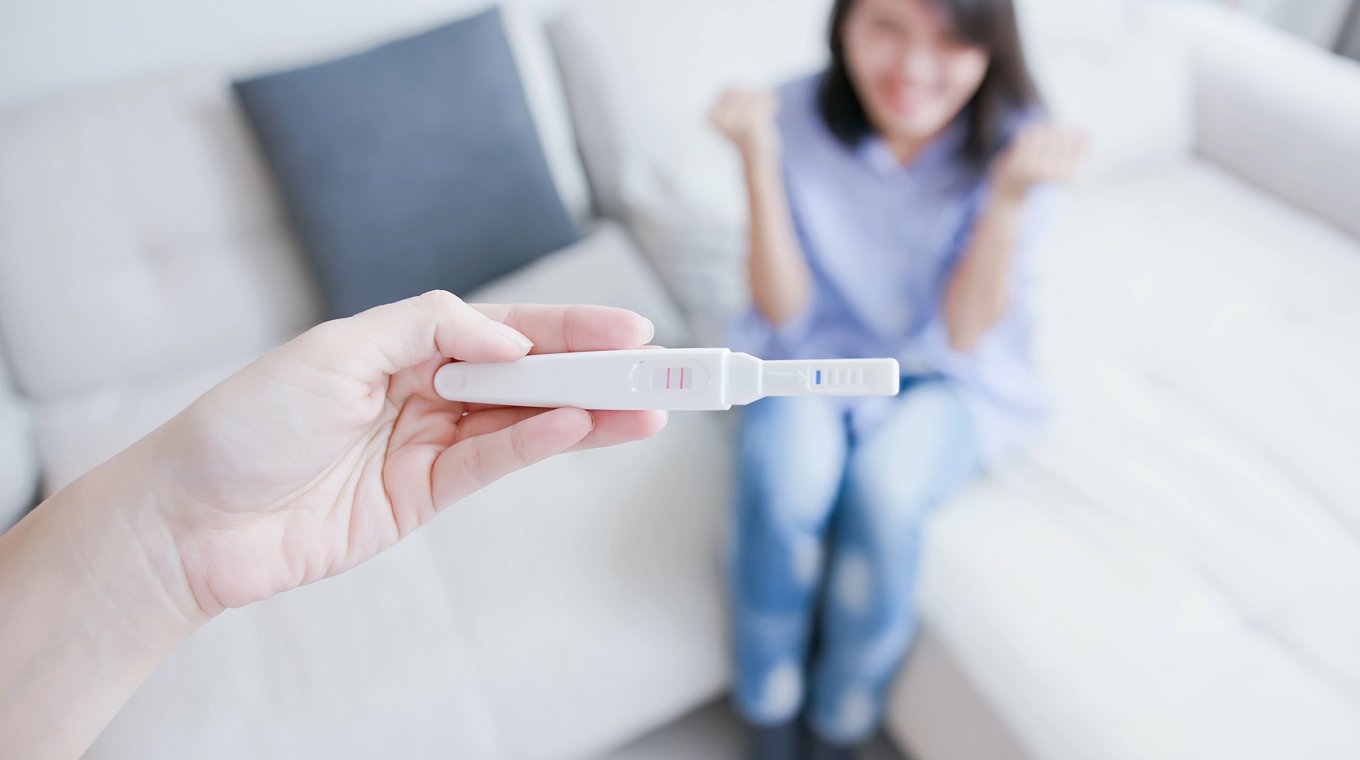
In this article
According to the Office of Women’s Health, 1 in 10 women of childbearing age have polycystic ovary syndrome (PCOS). Because PCOS can also cause missed or irregular menstruation, it is a common reason for infertility. For the almost 5 million women in the US who have PCOS, there are many possible treatments, as well as medications you can take to increase your odds of getting pregnant.
For women diagnosed with PCOS, the good news is that you can still have a successful pregnancy. “I underwent infertility treatments and got pregnant on my first cycle,” mom of two Miranda Wicker told Mom.com. “Then I got surprise pregnant the second time.”
What is PCOS?

PCOS is an endocrine disorder that affects the ovaries and ovulation, resulting in a hormonal imbalance. Though linked to genetics, inflammation, and insulin resistance, doctors still aren’t sure what causes PCOS. For some women, it can start as early as puberty — even with the first menstrual period.
“I knew something was up as a teen with extremely irregular periods,” mom of four Romana Sinegal told Mom.com. “But I actually ended up diagnosing myself with PCOS before any doctor did.”
Often, PCOS disrupts the menstrual cycle, leading to fewer or longer periods. Severe acne, hair growth, and weight gain are also common. “I had a ton of symptoms including an erratic period, growing cysts while pregnant, and everything that made my OB-GYN sure I had it,” mom Jacqueline Cromwell told Mom.com.
What are the symptoms of PCOS?

Getty Images
While there are more symptoms, PCOS is usually when you have at least two of the following signs:
Irregular periods
The most typical sign is irregular, infrequent, absent, or prolonged periods.
Elevated androgen levels
High levels of the male hormone may physically manifest in too much hair (on the face or the body), male-pattern baldness, or severe acne.
Polycystic ovaries
This is when the ovaries are enlarged and possibly covered in many tiny cysts.
While the exact causes of PCOS aren’t known, there are many possible factors that may play a role such as genetics, being overweight, having higher than normal levels of androgens in women, or higher levels of insulin.
How to get pregnant with PCOS

Getty Images
PCOS is a frequent reason for infertility in women.
“Not all women with PCOS have difficulty becoming pregnant,” Dr. Laurence Jacobs, director of the Polycystic Ovarian Syndrome Center for Excellence, wrote for the Fertility Centers of Illinois. “For those that do experience difficulty, infrequent ovulation is a common cause. Ovulation is required to achieve pregnancy and can be induced through medication.”
While there are no guarantees of pregnancy, there are many ways to treat PCOS. From lifestyle changes to various medications, it is very possible to get pregnant even with PCOS.
Lifestyle changes
Due to PCOS negatively affecting your body’s ability to properly process insulin, many women with PCOS can be overweight, which is often a cause of infrequent ovulation. According to research, even losing 5% to 10% of your current body weight is enough to jump-start ovulation. Thus, doctors typically recommend women alter their diets and/or exercise to help facilitate weight loss.
Sinegal grew up eating what was considered healthy at the time: low-fat and high-carb. Her first two pregnancies were assisted by medications and fertility injections. She said, “I figured I couldn’t get pregnant with another easily but at the same time changed my diet to Keto and discovered I never needed that help after all and had my fourth.” Sinegal wished her doctors had known or advised her of this earlier before she spent all that money on fertility treatments.
Summer Len Davis, mom of three, had a similar experience. “It’s a low-carb diet. You have to avoid sugar and keep carbs under 60 a day,” she explained to Mom.com.
As usual, there have been conflicting studies about whether the low-carb diet helps with PCOS or not. The main thing is to make sure you eat nutrient-rich foods with adequate protein and consume few high-sugar foods. Also consider avoiding highly processed and junk foods.
Fertility Treatments
In addition to diet and exercise, many try drugs such as metformin, Clomid, letrozole, or gonadotropins to stimulate ovulation.
“I had to take metformin both times. The first time was grueling because we had to figure out what worked,” mom of two Jessica Nichelle told Mom.com. “The second time was less than a year because we knew what to do.”
Often, taking medications will be paired with additional fertility treatments like IUI (intrauterine insemination), IVF (in vitro fertilization), or IMF (in vitro maturation).
“My first attempt to get pregnant was with Clomid and it didn’t work,” confided Sinegal. “My next attempt was with fertility injections and IUI, and I was pregnant with my first. The next time, this same procedure ended with twins.” As she previously mentioned, prior to her last pregnancy, Sinegal changed her diet and became pregnant with her fourth.
Though PCOS presents many fertility challenges, many women were still able to get pregnant, with or without medical assistance. If you suspect you may have PCOS, even if you are not trying to get pregnant, please consult your doctor for an official diagnosis.
*Disclaimer: The advice on Mom.com is not a substitute for consultation with a medical professional or treatment for a specific condition. You should not use this information to diagnose or treat a health problem without consulting a qualified professional. Please contact your health-care provider with questions and concerns.
